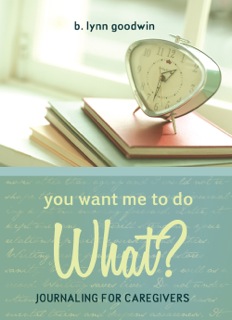Guest Blogger Karen Hart reveals secrets about how to Keep Calm, Carry On and Let the Magic Begin: How To Breathe Life Into Your Work Through Revisions.
During my thirties, I wrote my first novel, Butterflies in May. It tells the story of a 17-year-old high school senior, Ali Parker, who discovers she’s pregnant. I gave her characteristics, created a family, a best friend and boyfriend, and described where she lived. I effectively created a situation and characters, and the mechanics were in place. After nine months of work, I had a novel, but the story was flat. It was discouraging after all that effort, but in the words of Hemingway: “The first draft of anything is shit.”
The goal in writing a novel (or any body of work) is to capture the magic, give it a heartbeat and touch your readers in a relevant way. Revising and editing are essential to breathing life into your words.
So how to capture the magic?
There’s no clear formula other than to learn how the magic manifests for you. For me, it begins with the mechanics, then somewhere along the way, an idea takes hold and takes over. That “idea” could be a word, a phrase, a scene, a scent or snatch of dialogue. While revising Butterflies in May, a scene between Ali and her newborn baby woke me up at 5 in the morning. I got up, went to my computer and started writing. Today, teen girls often tell me that passage makes them cry. The passage still brings tears to me, because I cried as I wrote it. Here are a few ideas to get your writer mojo on and capture the magic.
- Set your first draft aside. Save your original, then save it again under a different file name so you can be freely ruthless with changes later. Refrain from showing it to your friends who will most likely find a polite way to tell you it’s awful. (Remember what Hemingway said? It’s not ready.) Return to it one day at the time you work best.
- Take a look at your book chapter-by-chapter. Print it out and pull it apart. Eliminate slow starts, and tighten descriptions. Check for the following: Does the story move forward at a good pace? Do the characters engage you? Do they have flaws your readers can relate to? Can you clearly see who they are? Next, fill in sensorial details to breathe life into your work. Can you smell the coffee brewing? Feel the sweat along your character’s hairline? Hear the door creak open?
- Make sure your dialogue flows. Eliminate unnecessary dialogue. Make sure your characters sound natural, not stiff. Be sure your characters don’t all sound the same. Let their use of language, word choice, slang or cursing set them apart.
- Follow your instincts. Trust what comes to you. In my first novel, I gave Ali’s newborn son a name, Jonah. I’d heard it one day, liked the sound of it, not giving it any more thought than that. Later, Ali has a dream in the hospital about him. In the dream, Jonah is a young boy and says, “It’s okay, Mommy. I’ll always love you.” Then I wrote that he turned into a bird and flew away. Months later, I learned that “Jonah” means dove and made changes so Ali would discover this, too. (This is the stuff of magic, and a story writing itself.)
- Allow your characters to take over. In my second novel, I’d written about a character named Beau, whom I originally planned to be an all-around nice man. Later, as I worked on revisions, Beau came more fully to life and I didn’t like his behavior. I stopped writing; the novel came to an abrupt halt. When I allowed Beau to take over, the writing flowed, I followed Beau’s lead and the story changed for the better.
Karen will be on a panel of editors at Writers Forum in Petaluma on May 21, 2015.
Join us and learn how to keep calm, carry on and catch the magic.
 Award-winning writer, editor and novelist, Karen Hart, has served as the editor for two corporate magazines and a newsletter and continues to be slightly obsessive-compulsive about all writing endeavors.
Award-winning writer, editor and novelist, Karen Hart, has served as the editor for two corporate magazines and a newsletter and continues to be slightly obsessive-compulsive about all writing endeavors.






